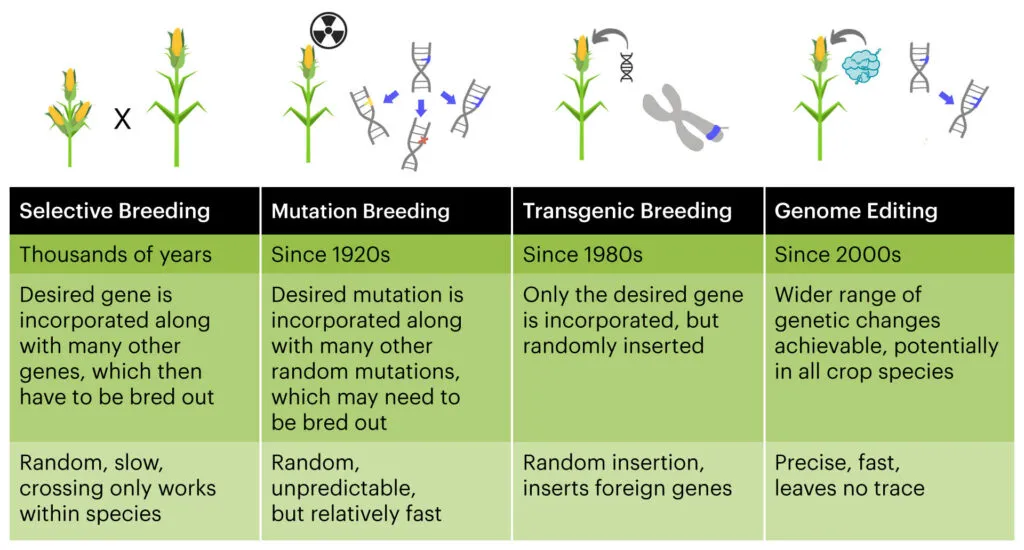In the quest to bolster crop resilience against harsh winter conditions, a groundbreaking study led by Mengjuan Hou from the College of Life Science at Shihezi University in China has uncovered a promising avenue. The research, published in the journal *Plants* (known in English as *Plants*), focuses on the *Saussurea involucrata* plant, a hardy species thriving in cold environments. The study highlights the role of a specific gene, *SiCML6*, in enhancing freezing tolerance, offering a potential game-changer for agriculture and the energy sector.
Low-temperature stress is a significant challenge for farmers worldwide, often leading to reduced crop yields and economic losses. Hou and her team identified seven differentially expressed *CML* (Calmodulin-like) genes in *Saussurea involucrata* under cold stress. Among these, *SiCML6* stood out due to its strong induction at both 4 °C and −2 °C. “This gene’s response to cold stress suggests it plays a crucial role in the plant’s survival mechanisms,” Hou explained.
The study revealed that *SiCML6* encodes a transmembrane protein with an EF-hand domain, a characteristic feature of calcium-binding proteins. This protein is not only involved in calcium signaling but also contains a signal peptide, indicating its potential role in cellular communication during stress responses. Phylogenetic analysis showed that *SiCML6* is closely related to a protein found in sunflowers, suggesting a conserved mechanism across different plant species.
To understand the functional implications of *SiCML6*, the researchers overexpressed the gene in *Arabidopsis* plants. The results were striking: plants with elevated *SiCML6* levels showed significantly higher survival rates at −2 °C compared to wild-type plants. “The enhanced freezing tolerance in these plants is a testament to the gene’s potential in improving crop resilience,” Hou noted.
Under freezing conditions, *SiCML6*-overexpressing plants exhibited reduced oxidative damage, as evidenced by lower levels of malondialdehyde and relative electrolyte leakage. Additionally, these plants accumulated higher levels of osmoprotectants like proline, soluble sugars, and soluble proteins, which help mitigate the effects of cold stress. The total antioxidant capacity (T-AOC) was also elevated, indicating a robust defense mechanism against reactive oxygen species (ROS).
The study further explored the molecular pathways activated by *SiCML6*. It was found that the gene upregulates the expression of cold-responsive genes *CBF1/2/3* and *COR15a*, which are key players in the CBF-COR signaling pathway. This pathway is well-known for its role in enhancing freezing tolerance in plants. “By activating this pathway, *SiCML6* not only boosts the plant’s immediate defense mechanisms but also prepares it for future stress events,” Hou added.
The implications of this research extend beyond agriculture. In the energy sector, bioenergy crops that can withstand harsh winter conditions can lead to more reliable and sustainable energy production. By incorporating *SiCML6* into bioenergy crops, farmers can ensure better yields and more consistent energy outputs, even in colder climates.
As the world grapples with the challenges of climate change and food security, innovations like *SiCML6* offer a beacon of hope. Hou’s research not only sheds light on the intricate mechanisms of plant cold tolerance but also paves the way for developing more resilient crops. “This discovery is just the beginning,” Hou concluded. “We are excited about the potential applications of *SiCML6* in improving crop resistance to various abiotic stresses, ultimately contributing to global food security and energy sustainability.”
With the publication of this study in *Plants*, the scientific community now has a novel target for enhancing crop cold resistance. As further research unfolds, the integration of *SiCML6* into agricultural practices could revolutionize how we cultivate crops in challenging environments, ensuring a more secure and sustainable future for all.

